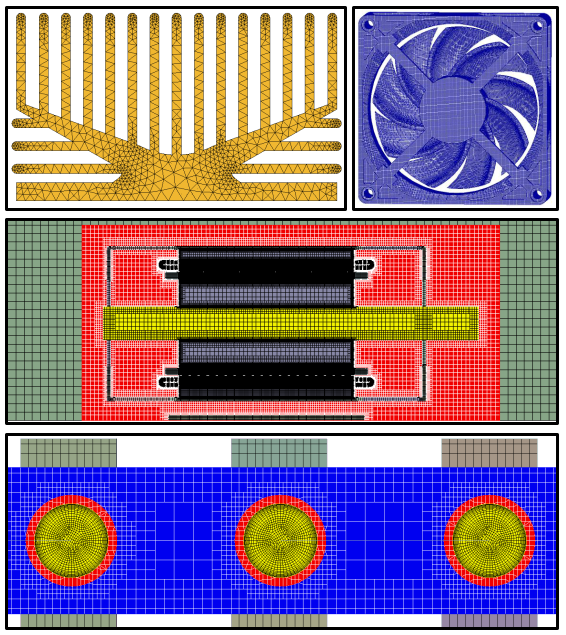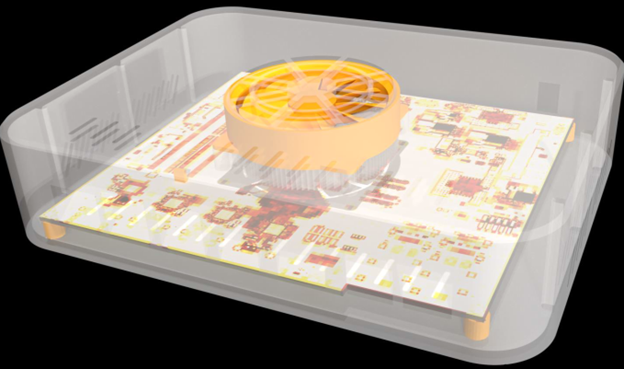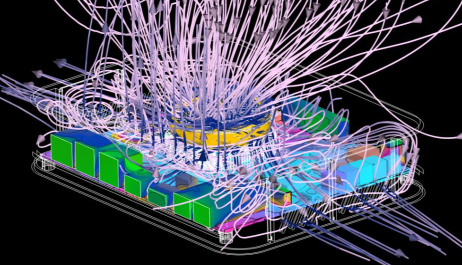Ansys Advanced Icepak Training Overview
Ansys Icepak provides flow and thermal management solutions for many types of electronic design applications. This paid course builds upon the content discussed in the EMAG103 Ansys Icepak training course and covers advanced features of Ansys Icepak in the Ansys Electronics Desktop (AEDT) user environment. Students will be introduced to the world of electronics thermal modeling through a combination of lectures, workshops and examples/demonstrations.
Covered topics include:
- Advanced ECAD & MCAD import
- Advanced meshing
- Transient simulations
- Parametric analysis & optimization using Optimetrics
- Advanced modeling techniques including the use of Toolkits
- Turbulence models
Prerequisites
- Completion of EMAG103 is recommended
- A technical education/background in electronics and/or fluid mechanics and heat transfer is recommended but an engineering degree is not required.
Who should take this course
- Thermal engineers, Mechanical engineers, Electrical engineers
When you complete the course you will:
- Receive an official certificate of completion with professional development hours that can qualify for the continuing education requirements upon renewal of a PE license in most states.
- Be able to:
-
- Import MCAD geometry into AEDT Icepak and use defeaturing tools
- Use advanced ECAD import capabilities
- Model an inclined PCB
- Include DCIR losses using coupled HFSS 3D Layout and AEDT Icepak designs
- Use advanced meshing techniques
- Perform a transient simulation
- Setup and perform Optimetrics analysis
- Apply special applications such as MRF modeling, turbulence models, toolkits, and ACTs
Contact Us
EMAG 104 | Course Agenda
1. Module 1
- MCAD model analysis and cleanup in AEDT Icepak
- MCAD import via Ansys SpaceClaim
2. Module 2
- Advanced ECAD import capabilities
- Modeling of inclined PCB
- DCIR analysis with HFSS 3D Layout and AEDT Icepak
3. Module 3: Advanced meshing techniques
-
- Mesh regions
- Multi-level meshing
- Per-Object mesh operations
- Best practices
4. Module 4
- Transient simulations
- Optimetrics analysis
- Parametric analysis
- Optimization
- Sensitivity analysis
- Statistical analysis
- Tuning
5. Module 5:
Special applications
-
- Advanced fan modeling: Lumped and Multiple Reference Frame (MRF)
- Turbulence models
- Icepak toolkits and ACTs




